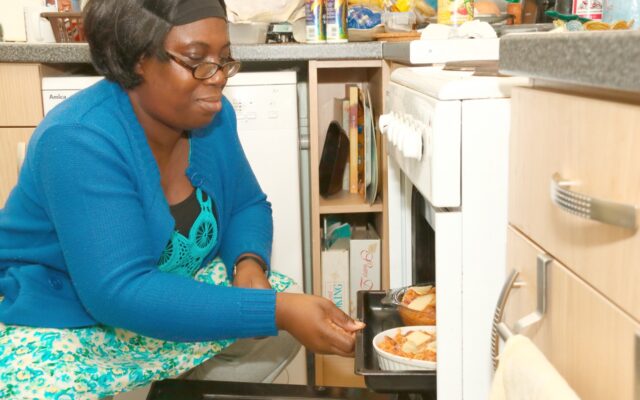In 2010, the Conservative-Liberal Democrat coalition government started a series of cost-cutting measures to government budgets. The public were told these measures were essential to bring the budget deficit under control.
This austerity programme hit the groups in our society who are least able to bear the brunt of cuts to their incomes and the services they rely on.
A series of slashes to the welfare benefits budget has undermined a system that was originally designed as a safety net for many different people in wide-ranging circumstances. These include people with disabilities, those in low-paid and insecure employment, lone parents and unemployed people who depend on benefits to survive.
Some studies into the impact of austerity suggest that people with disabilities, women and those from black and minority ethic backgrounds have been disproportionately affected by the cuts.
Here are some “highlights” of the austerity measures affecting benefits:
- The “bedroom tax” (a reduction in benefits if a claimant’s rented property is deemed to have more bedrooms than necessary), which led to housing benefit claims being cut by 14% or 25%
- Rates of some benefits for people of working age being frozen for four years – when they will be unfrozen is uncertain
- Work allowances – the amount claimants can earn before their benefit starts to be tapered away – were reduced in universal credit
- A cap on the total overall amount of benefit for working-age people
- Removal of the limited capability for work component from employment and support allowance and universal credit
- Two-child limit in claims for universal credit and child tax credit, so benefit is not paid for additional children born from April 2017.
A theme that runs through the system of benefits for people of working age is the increased use of “conditionality”. This is the policy that claimants must carry out tasks and activities as directed by job centre staff or risk being sanctioned and seeing their benefit cut.
Shockingly, until changes were made in November 2019, a claimant could receive a sanction that lasted as long as three years. This maximum period has been reduced to six months.
UN finds destitution
Probably the starkest report into the impact of austerity across the UK was that written and researched by the United Nations’s special rapporteur on extreme poverty and human rights, Philip Alston (2019).
He found that 14 million people live in poverty in the UK. Four million are more than 50% below the poverty line, and 1.5 million citizens are destitute, unable to afford the essentials of life. This is despite the fact that the UK is the fifth largest economy in the world.
“Much of the glue that has held British society together since the Second World War has been deliberately removed and replaced with a harsh and uncaring ethos,” Alston wrote.
People with disabilities have been saved from some specific policy changes. For example, the benefit cap does not apply where the claimant or their partner or child gets a disability benefit, such as a personal independence payment (PIP) or has limited capability for work- related activity.
In addition, disability benefits such as PIP and disability living allowance have not been frozen but uprated annually.
However, the introduction of universal credit has brought further financial misery for disabled benefit claimants.
The biggest loss for claimants with disabilities has been caused by the failure to include within universal credit the disability, severe disability and enhanced disability premiums that are available in the old, legacy means-tested benefits.
A 2018 research report commissioned by the Equality and Human Rights Commission projects a substantial loss in income to households with a disabled adult or child as a result of recent changes to the benefits and tax systems.
There have been successful challenges to some of the welfare changes. Following wins in the High Court by disabled universal credit claimants, the government has been forced to delay its full roll-out of the benefit to existing claimants. It has had to begin paying compensation to disabled claimants who have lost out as a result of being moved from legacy benefits, which included disability premiums, to the less generous universal credit.
There are many disturbing developments that policy researchers point to that have resulted from austerity. These include a large increase in the demand for food banks, shocking reports of mothers entering prostitution in order to feed and clothe their children (“survival sex”), and teachers in many regions reporting that children are unable to concentrate as they come to school so hungry.
It is such developments that led Alston to liken the welfare benefit system to “a digital and sanitised version of the nineteenth-century workhouse, made infamous by Charles Dickens”.
When you consider the many swingeing cuts and damaging changes that government has made to various welfare benefits, it is difficult not to regard the austerity measures as an attack
– whether by accident or by design
– on the poorest and most vulnerable in our society. n
Charlie Callanan is an adviser and writer on welfare rights
Reference
Philip Alston (2019) Report of the Special Rapporteur on Extreme Poverty and Human Rights on his Visit to the United Kingdom of Great Britain and Northern Ireland. United Nations General Assembly. https://undocs. org/A/HRC/41/39/Add.1




